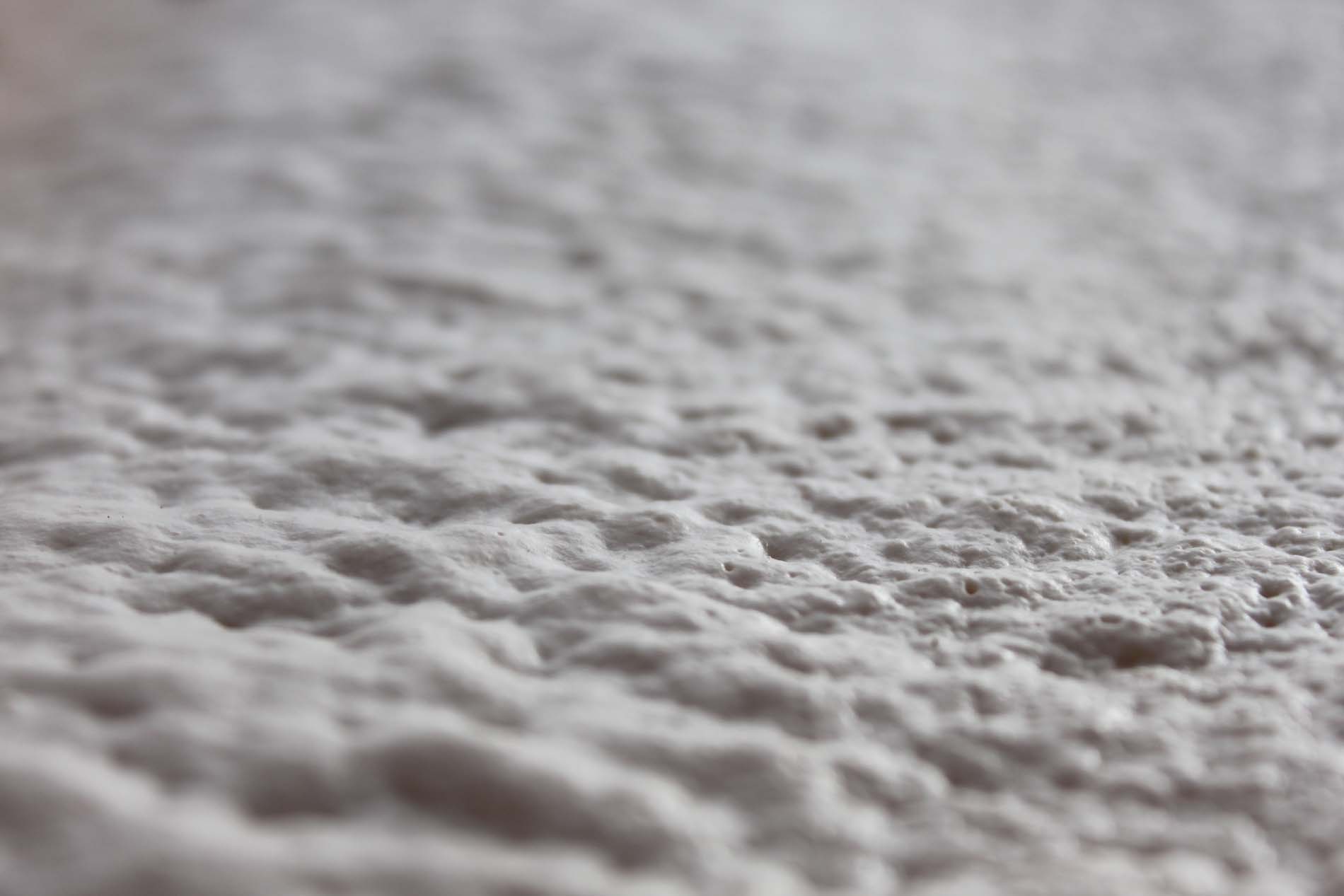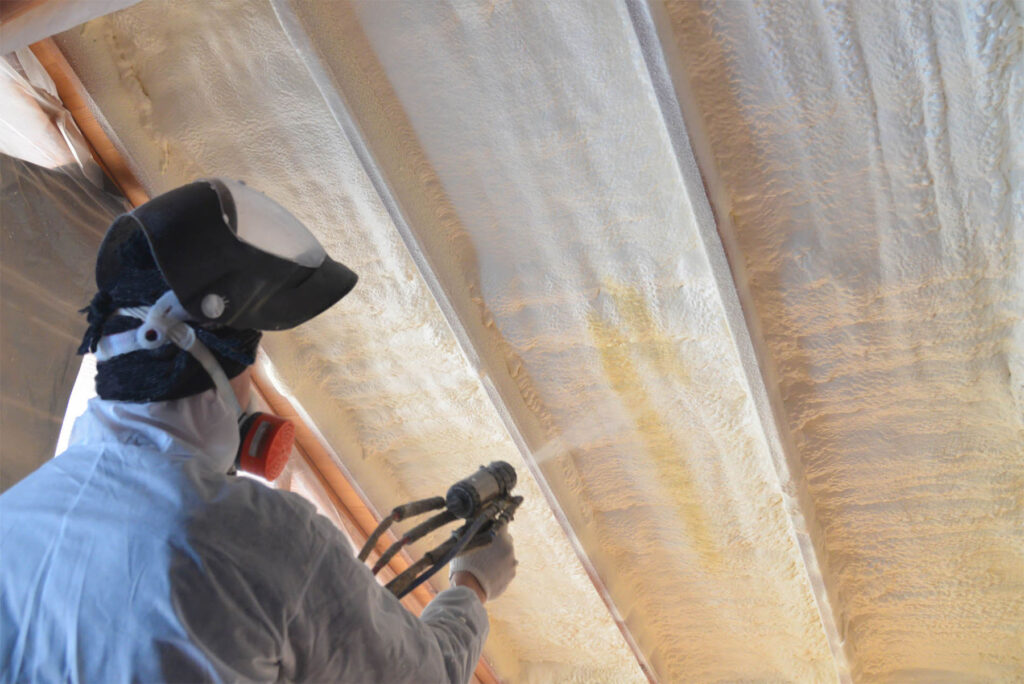
Spray foam insulation has rapidly become a top choice for homeowners and contractors alike — and it’s not hard to see why. With its excellent energy efficiency, long-term performance, and ability to create a tight air seal, it’s a modern upgrade from traditional insulation methods like fibreglass or cellulose.
In Winnipeg, where extreme temperatures and freeze-thaw cycles are a part of daily life, choosing the right type of spray foam is more than just a matter of preference — it’s about long-term comfort, energy savings, and protecting your home against the elements.
In this post, we’ll break down the key differences between open cell vs closed cell spray foam insulation, explain how each works, and share expert tips to help you make the best decision for your home and property.
What Is Spray Foam Insulation?
Spray foam insulation is a liquid material that expands into a foam when sprayed, sealing gaps and creating an effective air barrier. Once applied, the foam hardens to insulate walls, attics, crawl spaces, and more.
The foam’s ability to expand — sometimes up to 100 times its original size — allows it to fill even the tiniest cracks and crevices. The result? Reduced heat flow, better thermal resistance, and lower heating and cooling costs.
There are two main types of spray foam:
- Open Cell Foam: A softer material with an open cell structure that allows air to pass through.
- Closed Cell Foam: A high-density, closely packed material that acts as both an insulator and vapour barrier.
Understanding the difference between open cell and closed cell spray foam is the first step in making the right choice for your home.
Open Cell Insulation: Features, Benefits & Ideal Uses
Structure: Light, soft, and spongy
R-value per inch: Approximately R3.5 to R4
Best for: Interior walls, soundproofing, and open wall cavities
Benefits:
- Excellent air sealing for interior applications
- More affordable in terms of material costs and labour
- Highly flexible — great for filling tiny spaces or irregular framing
- Excellent for sound dampening, absorbing sound waves to reduce noise transfer
Drawbacks:
- Lower R-value per inch compared to closed cell
- Moisture permeable, meaning it doesn’t provide a vapor barrier
Open cell spray foam insulation is often chosen for its soundproofing qualities and ability to fill large areas with less material, making it ideal for interior projects like between-floor insulation or pole barn interiors.
Closed Cell Insulation: Features, Benefits & Ideal Uses
Structure: Dense, rigid, and moisture impermeable
R-value per inch: Approximately R6 to R7 — a higher R value
Best for: Rim joists, basements, crawl spaces, unvented attics, and exterior walls
Benefits:
- Superior thermal resistance and energy performance
- Acts as a complete moisture and vapor barrier
- Adds structural integrity to walls due to its rigid structure
- Ideal for Winnipeg winters and other extreme temperatures
Drawbacks:
- More expensive due to high density and blowing agents
- Provides less sound insulation than open cell
Closed cell spray foam insulation is the go-to option when you need durability, moisture resistance, and the ability to withstand extreme temperatures. It’s perfect for areas where water intrusion or heat loss is a concern.
Winnipeg Climate Considerations
Winnipeg’s weather isn’t for the faint of heart. With long, frigid winters and frequent freeze-thaw cycles, effective insulation is a must. Here’s why closed cell foam insulation is often recommended in this region:
- Prevents air leakage around rim joists and in cold crawl spaces
- Provides a crucial vapour barrier for unvented attics and basements
- Resists moisture and condensation, which can lead to mould or rot
That’s why closed cell spray foam is often recommended in Winnipeg. Its dense structure forms a strong air and vapour barrier, offering excellent thermal resistance and moisture control. With a higher R-value per inch, it performs exceptionally well during long cold snaps and in damp spaces like basements and exterior walls.
That said, open cell spray foam still has a role in Winnipeg homes. Its sound dampening ability and lower cost make it ideal for interior walls and between floors, where moisture isn’t a concern but noise reduction is. It also expands more, filling small gaps efficiently with less material.
Which One Is Right for You?
Here’s a quick checklist to help you decide between open cell vs closed cell insulation:
✅ Budget: Open cell is more affordable due to less material required
✅ Application Area: Use open cell for interiors; closed cell for exteriors, basements, and unvented attics
✅ Moisture Exposure: Choose closed cell foam in damp or high-humidity areas
✅ R-value Goals: Closed cell offers a higher R value per inch
✅ Soundproofing Needs: Open cell excels in sound dampening
Still unsure? Get a free consultation with Above All and let our team provide tailored recommendations for your space.
Why Choose Above All for Your Spray Foam Installation
When it comes to spray foam insulation in Winnipeg, experience and local knowledge matter. At Above All:
- ✅ We bring 20+ years of experience in foam insulation
- ✅ Over 90% of work is completed by our own in-house crews — no random subcontractors
- ✅ We offer a solid 5-year workmanship warranty on all jobs
- ✅ Our team understands Winnipeg’s unique building codes and climate challenges
- ✅ We’re proudly certified with Caliber for spray foam insulation quality assurance
We’ve helped thousands of homeowners and businesses across Manitoba reduce their energy costs and improve indoor comfort.
Conclusion: Book Your Free Home Insulation Assessment Today
Upgrading your insulation doesn’t just improve comfort — it saves money on heating and cooling costs, protects your home’s structure, and reduces your carbon footprint. Whether you’re considering open cell foam, closed cell spray foam, or still weighing up the pros and cons of open cell vs closed, we’re here to help.
Take the first step. Book your free insulation quote & assessment with Above All Insulation and discover how spray foam insulation can transform your space. Rebates may be available, and every installation is backed by our experienced team.
